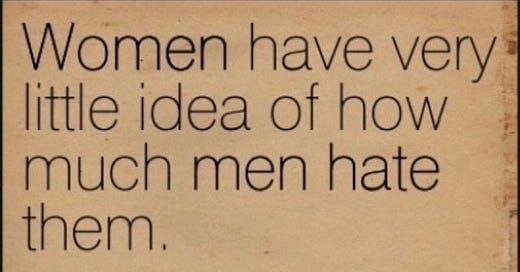Why aren't more men talking about this?
Because too many are living lives of secret woman-hatred
This week, as the trial of Dominique Pélicot (and 50 other men) has begun for drugging his wife Gisèle and offering up her unconscious form to be raped, many of my female friends have been exchanging quiet messages of solidarity with one another. These are friends who have suffered the capacity of men to harbour secret lives of extreme women-hatred, and who see Pélicot, not as a monstrous outlier, but on the same spectrum that their (ex-)partners occupy.
Off the top of my head, I can list numerous women among my acquaintances - or acquaintances of acquaintances - who have discovered that their (male) partners were living secret lives. It’s common knowledge that my late husband was secretly pursuing multiple court cases entirely unbeknownst to me, risking my and my children’s financial security and home. I know several women who have discovered husbands were maintaining long-running affairs; and one who found out that her husband had an entirely separate family: a secret second home, second wife, second daughter. There are women who have discovered their partners’ secret gambling addictions and serious debt, and their concealed alcoholism and cocaine addictions. I know women whose husbands outwardly performed respectable pillar-of-the-community roles, but in the home were abusive, violent tyrants. By far the majority of the secret lives that I’ve come across have been in the realm of sexual behaviour. I know of a woman whose, again, outwardly respectable husband was convicted not just of accessing child pornography but of creating websites through which to distribute it. I know another woman who discovered that her husband was sexually abusing their infant child. Another woman discovered that her husband had made literally thousands of bookings with prostitutes, including arranging for prostitutes to visit him when she was in the same house, asleep in the room above.



